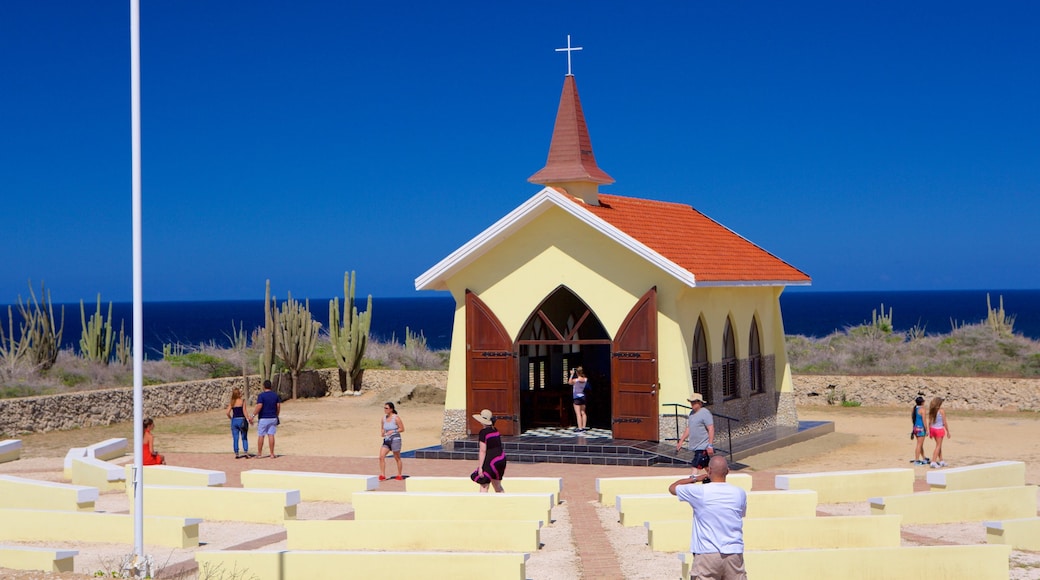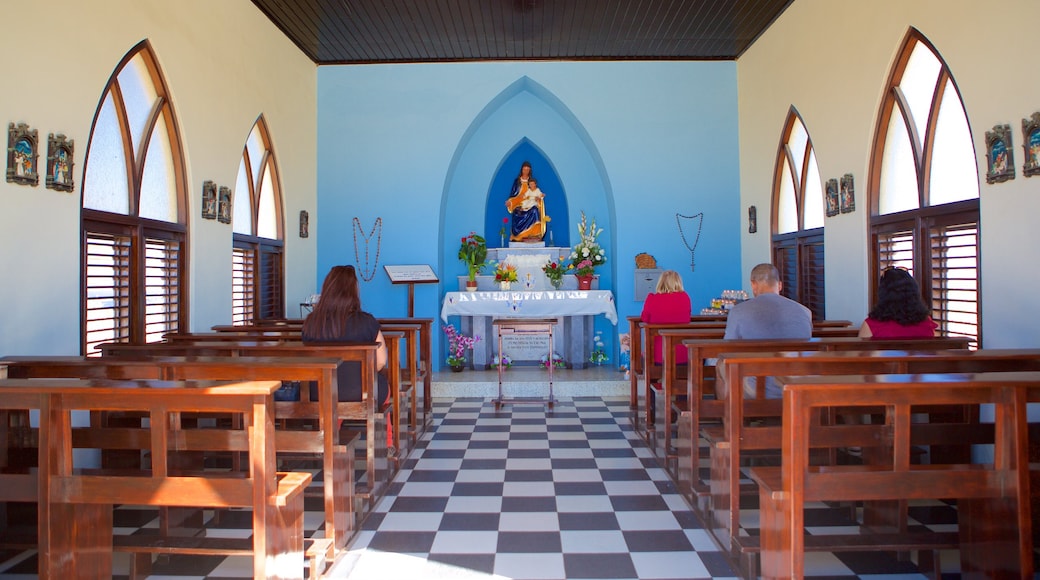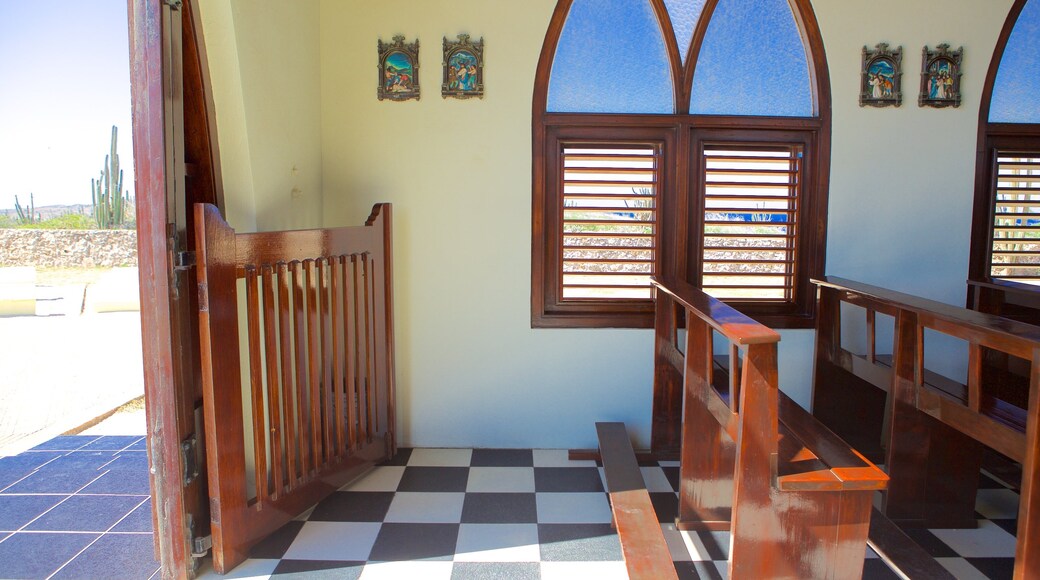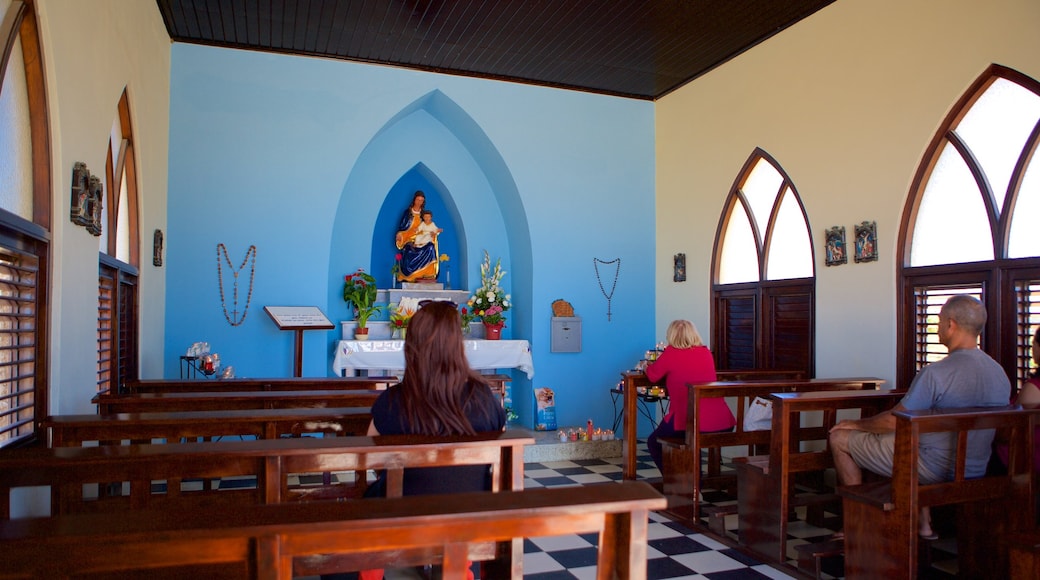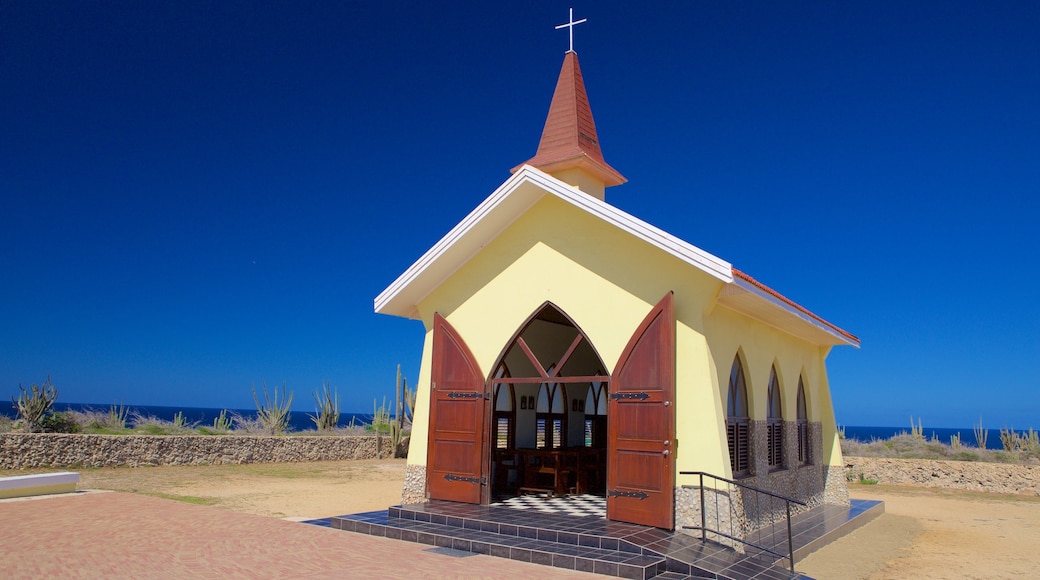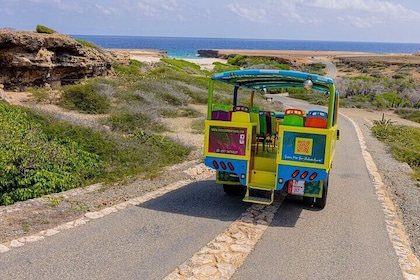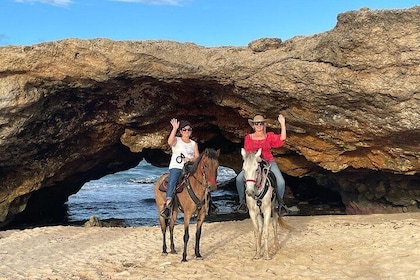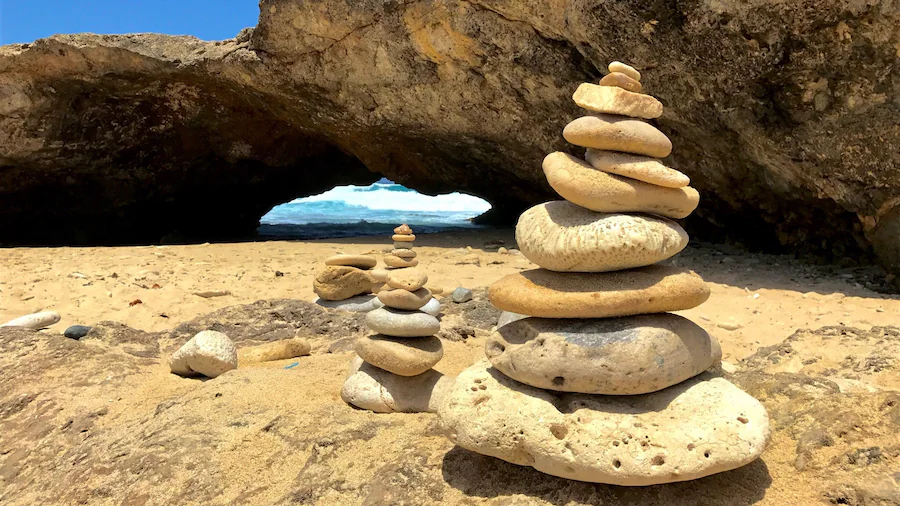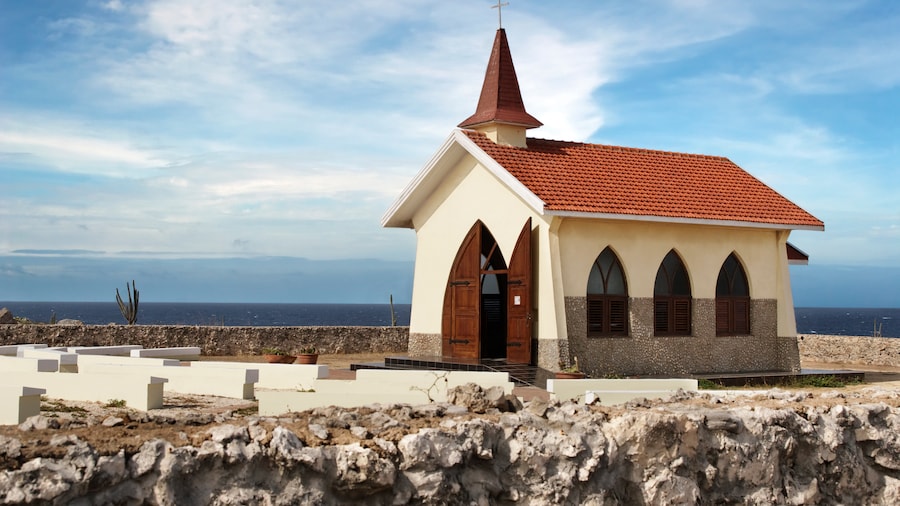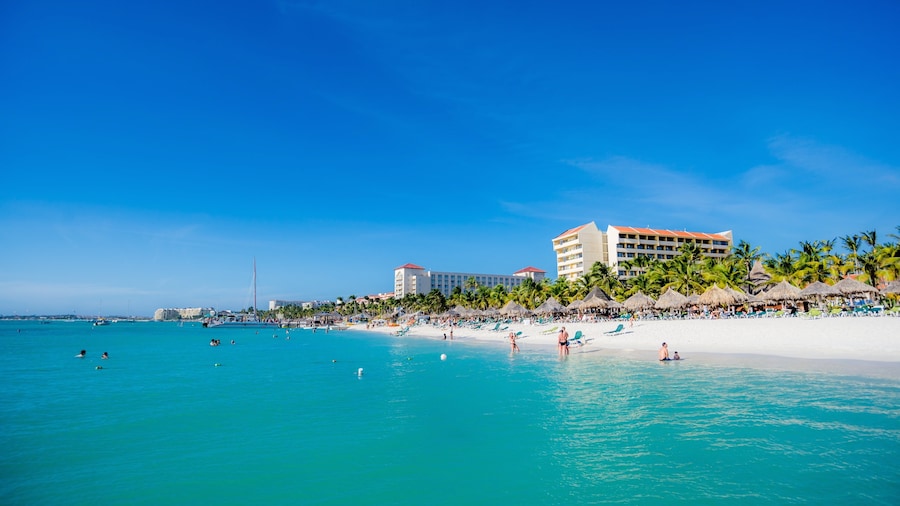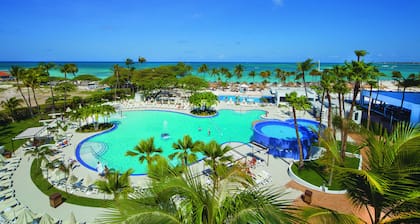Light a candle at this small chapel, which has a remote hillside setting that affords lovely views of the surrounding area.
Alto Vista Chapel is the spiritual centre of the island and an important place of worship for Aruban Catholics. Despite its remote location in the arid, scrubby northeast, visitors are still drawn to the rustic chapel for its serene ambiance and beautiful views. Bring along matches to light a candle and say a prayer inside the diminutive building, then admire the views of the coastline.
The first chapel built on this site was erected in 1750 and it was the first Roman Catholic Church to be built on the island. Nothing remains of this original structure though, and the chapel you see there today is a reconstruction dating from the 1950s.
En route to the chapel, watch for the white crosses lining the road. These represent the Stations of the Cross. Spend a few moment’s checking out the church’s façade. The bright yellow exterior, modest design and humble size contrasts both with the island’s glitzy resorts and with the more exuberant churches found in other Caribbean islands, such as St. John’s in Antigua.
Feel free to venture inside the tiny nave, which features a black-and-white checkered floor and wooden pews. Due to its compact size, the church can only accommodate a small number of people at a time, so you may have to wait to enter. Remember this is an active place of worship, so you should dress modestly and try not to disturb any worshippers inside. Visitors can also attend services, which take place on Tuesday evenings, though the mass will be performed in the local language of Papiamento, not English.
Look for windswept divi-divi trees nearby. Frequently touted as Aruba’s “natural compass,” these unusual twisted trees always point southwest due to the near-constant trade winds. They can be found throughout the island of Aruba.
The Alto Vista Chapel is located in the northeast of Aruba on a remote dusty roadway. Visit independently by car or arrange to see it as part of a guided tour to learn more about the history and significance of the site. Entrance is free.
